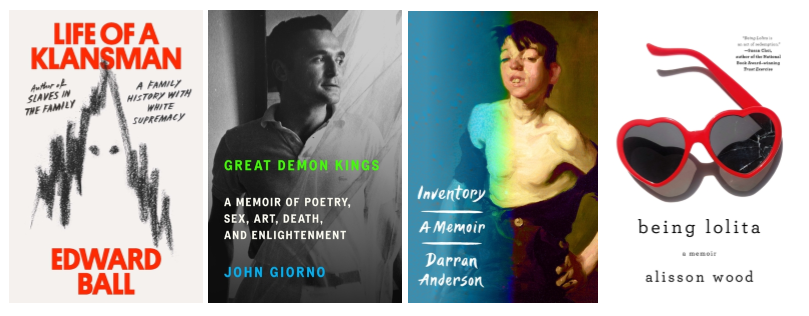Vanessa Springora's Consent: A Memoir (HarperVia) was a favourite amongst this weekend's critics. In the memoir, originally published in France in January 2020, Springora tells of having been sexually abused by writer Gabriel Matzneff between the ages of 14 and 16, when he was more than three times her age. Vanessa Springora’s memoir, Consent, is a troubling reminder that our horror at the idea of sex between adults and minors is relatively recent, and dependent on shifting cultural attitudes.
I am writing a memoir about my abusive childhood. Do I need permission from everyone I write about? My abuser is deceased, but my brothers are part of the story and I don't know where one of them is to request permission, but I don't want to go ahead without knowing I don't need their permission. Donna Freitas' memoir is a chilling and important look at consent, understanding consent, and how harassment can affect a person's present and future. “Consent is a Molotov cocktail, flung at the face of the French establishment, a work of dazzling, highly controlled fury.By every conceivable metric, her book is a triumph.” - New York Times 'Consent has something steely in its heart, and it departs from the typical American memoir of childhood abuse in exhilarating ways.'

Overview
Donna Freitas has lived two lives. In one life, she is a well-published author and respected scholar who has traveled around the country speaking about Title IX, consent, religion, and sex on college campuses. In the other, she is a victim, a woman who suffered and suffers still because she was stalked by her graduate professor for more than two years.
As a doctoral candidate, Freitas loved asking big questions, challenging established theories and sinking her teeth into sacred texts. She felt at home in the library, and safe in the book-lined offices of scholars whom she admired. But during her first year, one particular scholar became obsessed with Freitas' academic enthusiasm. He filled her student mailbox with letters and articles. He lurked on the sidewalk outside her apartment. He called daily and left nagging voicemails. He befriended her mother, and made himself comfortable in her family's home. He wouldn't go away. While his attraction was not overtly sexual, it was undeniably inappropriate, and most importantly—unwanted.
In Consent: A Memoir of Unwanted Attention, Donna Freitas delivers a forensic examination of the years she spent stalked by her professor, and uses her nightmarish experience to examine the ways in which we stigmatize, debate, and attempt to understand consent today.
Vanessa Springora's Consent: A Memoir (HarperVia) was a favourite amongst this weekend's critics. In the memoir, originally published in France in January 2020, Springora tells of having been sexually abused by writer Gabriel Matzneff between the ages of 14 and 16, when he was more than three times her age. In the Times, Melanie Reid dubbed the memoir 'rapier-sharp, written with restraint, elegance and brevity — and beautifully translated.' In the Guardian, Lauren Elkin said the author describes, with 'admirable restraint,' how Matzneff 'expertly manipulated her.' In the Spectator, Fleur Macdonald thought the memoir 'dismantles the myth of the eccentric genius,' adding that 'Matzneff’s legacy is now enmeshed forever in this clever, thoughtful and honest book.'

Inga Vesper's The Long, Long Afternoon (Bonnier Zaffre) wasn't a drag for this weekend's critics. The Sunday Times' Joan Smith wrote, 'Vesper mixes a gripping plot with pithy views on class, sex and race.' Whilst the Guardian's Laura Wilson descried the California-set mystery in which a 1950s housewife goes missing, as a ' tale of inequality, broken dreams and quiet desperation behind a picture-perfect facade.' Over in the Times, Antonia Senior called the novel a 'clever and absorbing debut'.
Critics heralded Steven Hall's Maxwell's Demon(Canongate Books) 'enjoyable,' 'consistently fun' and 'often impressive'. The Daily Telegraph's Jake Kerridge gave the book a near perfect score, calling the title a 'theory-heavy mystery novel that’s as postmodern as they come, and – or but, depending on the reader – it’s superb.' The Scotsman's Stuart Kelly felt Hall's second novel had been 'well worth the wait' adding 'the genius of the book is that despite it seeming like an elegant orrery, all these wheels within wheels are a carapace, a psychic armour against a grief.'

Consent A Memoir Of Unwanted Attention
Tamsin Hackett, Books Co-ordinator, The Bookseller
